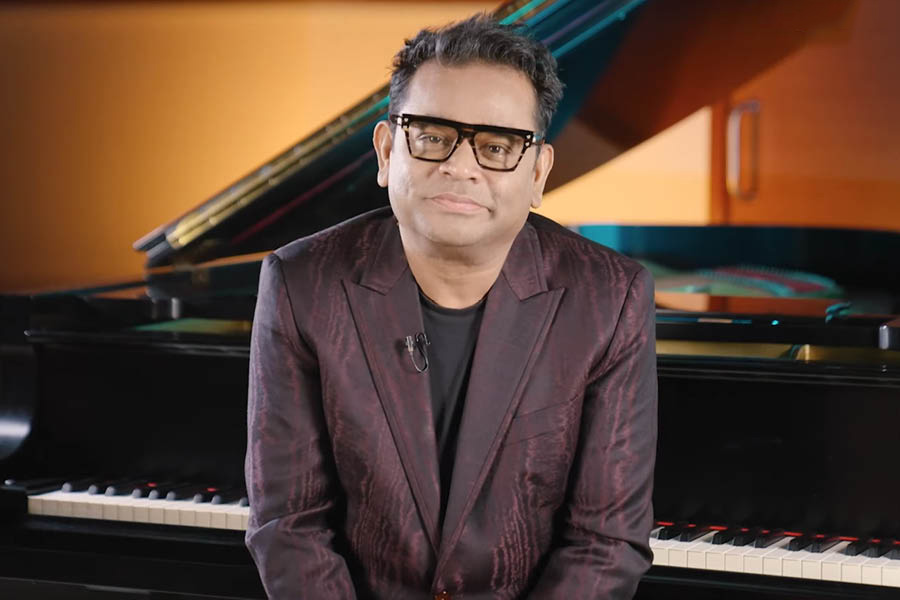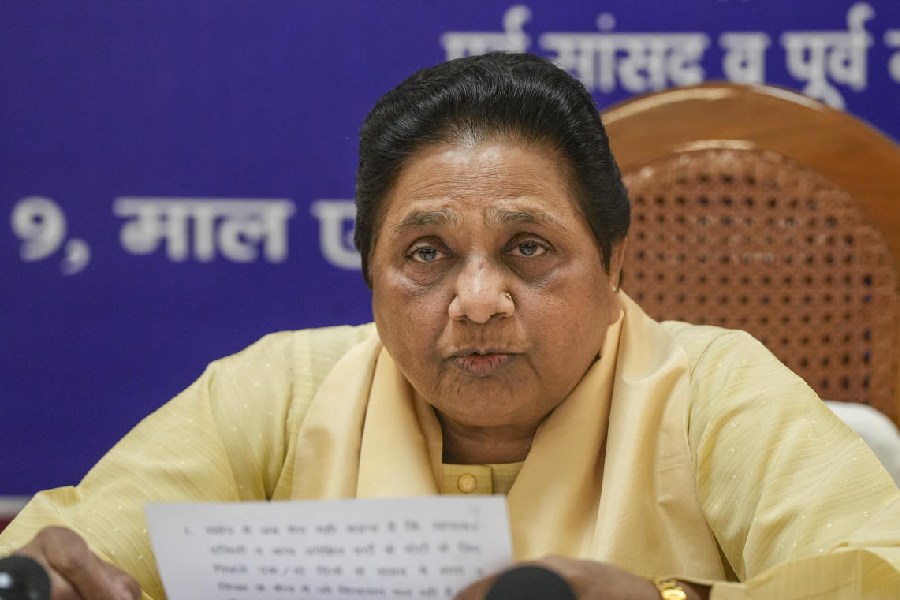Music composer A R Rahman says talent shouldn't be restricted to a region and young Indian artists like Cannes winner Payal Kapadia, who are in tune with changing times, play a key role in making stories from India go global.
Kapadia, an alumnus of the Film & Television Institute of India (FTII), is the first Indian filmmaker to win the Grand Prix award for "All We Imagine as Light" at the Cannes Film Festival. The Malayalam-Hindi feature, an India-French production, was the first film from an Indian director after 30 years to make it to the main competition section of the European gala.
Rahman, a multiple award-winning musician feted both at home and around the world with double wins at Oscars and Grammys besides a Golden Globe, said beautiful stories from India deserve international recognition.
"The spirit of the young people has changed now. They are more intelligent. They know where to move stuff, what kind of stories to tell. As long as we tell beautiful stories about India and not just poverty, it's a good thing.
"The art of film is not just for (audience at home), it's international... It’s important to learn certain things, not be happy with, 'Oh we got a great audience here, box office is good here.' Some people are not satisfied with that. So they go for (international festivals), Payal Kapadia is one (of them)," the composer told PTI in an interview.
Last month, Rahman was also at Cannes to unveil the Nagaland-set "Headhunting to Beat Boxing", directed by Rohit Gupta, at the festival's market.
“Sunflowers Were the First Ones to Know” by FTII student Chidananda S Naik and Anasuya Sengupta of “The Shameless” fame won major awards at Cannes. Sengupta became the first Indian to win the best actress prize in Un Certain Regard, while Naik’s “Sunflowers Were the First Ones to Know…” won the La Cinef first prize (film school fiction or animated films) at the film festival.
Recalling the time when he earned two Academy Awards for the British film "Slumdog Millionaire" in 2009, Rahman said there were people who said he deserved to win an award for "Lagaan" (which made it to the final five in the best foreign film Oscar category in 2002) and 1992's "Roja".
"We want our stories to be heard, represented and accredited. There's a system to follow. Even when I won Oscars and everything for 'Slumdog Millionaire', (people said) 'Lagaan' should have won, 'Roja' should have won. I said, 'First of all, I didn't even enter (these awards at the time), I didn't even enter all the stuff in any of the systems'," said the composer, who won the best original song Oscar for "Jai Ho" and another one for the original score of "Slumdog Millionaire".
In February, Zakir Hussain was India’s big winner with three Grammys, flautist Rakesh Chaurasia picked up two. Singer Shankar Mahadevan, violinist Ganesh Rajagopalan and percussionist Selvaganesh Vinayakram, Hussain’s collaborators in the fusion group Shakti, won one Grammy each.
Giving the example of multiple Grammy winners Hussain and Ricky Kej, Rahman said all in all, the Indian field of arts has witnessed a great high in the last decade.
"Half of the people don’t even know (how to enter the system). (They say) 'I think this should win the Grammy'... It’s not like that. There’s a process for everything. So, even in this case, I think they said it was a collaboration... even Payal Kapadia’s film," he added.
"Headhunting to Beat Boxing" is a musical documentary that follows the story of a tribe in the Northeastern state "engulfed in the depths of violence and bloodshed, (the tribe) resurrects itself through the healing power of music and emerges through a musical renaissance".
Rahman, who has backed the film via his ARR Immersive Entertainment banner, said he boarded it as a producer five years ago after he fell in love with Nagaland while attending the state's annual Hornbill Festival.
"I am into music and there was a kind of a correlation between me and the culture. We also adopted an orphanage and sent our (music) teachers to Nagaland to teach strings and everything." Rahman had worked with Gupta on the 2016 miniseries "The Creative Indians" and that's why he reached out to the filmmaker for a potential project on Nagaland.
The musician said Gupta shot the film for five years and then they worked on the edit and now have a cut ready.
Asked how he chooses the subjects he wants to produce, the multi-hyphenate personality, whose directorial debut film "Le Musk" had its world premiere at Cannes Film Market's Cannes XR program in 2022, said the answer was a bit "complex".
"When you go into filmmaking, it's an ocean. We have such great achievements from so many people. My thing was what people have not done. That's the reason I directed 'Le Musk'. Why can't people have 3D? Why can’t they experience something else than what they are all experiencing? Why can’t we do theatre? "It's always about filling the void, finding energy and resources to do that stuff. That’s what everything is about. Even our product is about what art is not there and should be given to people so that they can witness it, enrich their lives. My path is very selective because I need my time for music and shows," he said.
In terms of films, Rahman's upcoming projects are "Raayan" and "Lahore 1947".
Except for the headline, this story has not been edited by The Telegraph Online staff and has been published from a syndicated feed.










